11 Essential Aspects of Being Grateful
When only one of the ten lepers He healed turned back and Christ asked, “Where are the nine?” He wasn’t hurt that his good deed wasn’t acknowledged; he saw what the nine were missing by not expressing gratitude. You see it was only after the leper gave thanks that Christ could say the grateful leper was whole.
Being grateful is an essential part of a whole soul. Latter-day Saints are far from the only ones who praise gratitude.
Buddha made the observation, “Let us rise up and be thankful, for if we didn’t learn a lot today, at least we learned a little, and if we didn’t learn a little, at least we didn’t get sick, and if we got sick, at least we didn’t die; so, let us all be thankful.”
In Ancient Greece there was an epic philosophical throw down between the Epicureans and the Stoics, those guys argued for hundreds of years about the meaning of life, they couldn’t agree on anything, but they both praised gratitude.
Even science has found great value in the use of a gratitude journal.
It would seem that Aesop, the great storyteller, understood what all of humanity has joined in seeing, “Gratitude is the sign of noble souls.”
So since I want a noble soul, I want to see the many different aspects of gratitude to understand how to develop my own attitude of gratitude.
1. Principle of Gratitude

[pull_quote_left]Gratitude is a warm appreciation in response to someone who has given to us, and a desire to do something in return. Gratitude rejoices in what was and what is leaving no room for regret.[/pull_quote_left]
Unlike vanity, which believes we cause our own joy, gratitude sees in others the cause of our joy. Gratitude enjoys receiving, but does not keep the joy to itself, it shares, not to boast, but to create a joy ripple, prolonging and sharing the original pleasure.
Gratitude is not indebtedness because it is given freely. Gratitude is anchored on what has occurred. It is not hope, but knowledge. Gratitude rejoices in what was and what is, leaving no room for regret. In short, it’s been said, “gratitude is the most [pleasurable] of virtues and the most virtuous of pleasures.”
But to best understand how being grateful in our own lives helps us, we need to think about the entire experience of gratitude. This starts with learning how to show gratitude to those around us.
2. Importance of Showing Gratitude to Others
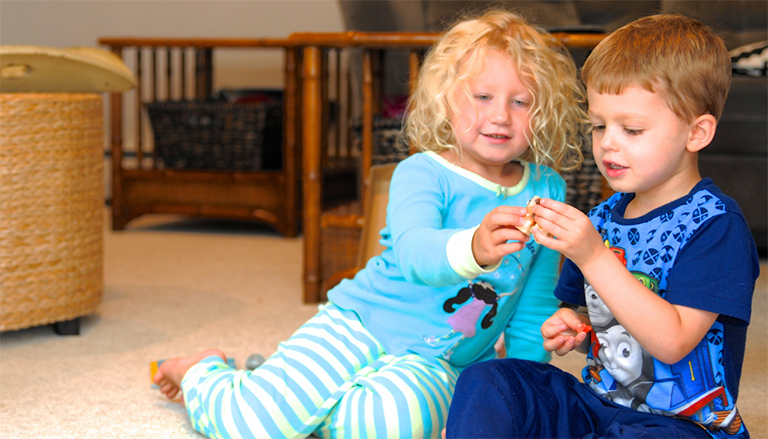
Why is it important to be grateful? The gratitude we give to one another is important because it encourages other positive behaviors. It accomplishes this first as a teacher, second as a motivator, and third as a reinforcer.
We can see how this works from the viewpoint of a young child who has been given a toy by an older sibling. Naturally, the child feels gratitude for the toy. Because she or he feels that pleasure the child learns sharing is good. Teacher.
That child then learns that when you give someone a toy, he or she feels good, so the child wants to share to give others the same feeling. Motivator.
And, if the child expresses that gratitude, the older sibling wants to share again in the future. Reinforcer.
What is miraculous about gratitude is that what makes us feel it (sharing, kindness, charity, generosity) are things we want more of. And gratitude makes us want to do those things.
3. To Whom Should I Be Grateful?
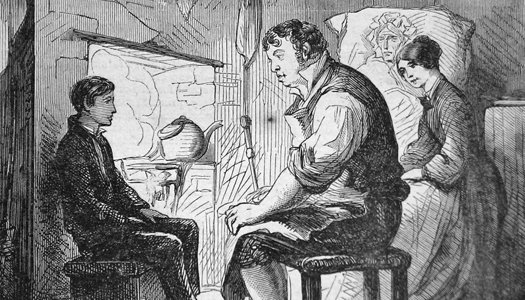
One of the challenges in showing gratitude to others is identifying to whom we should be grateful. Each gratitude relationship involves a receiver and a giver, or benefactor. Too often our many benefactors go unnoticed.
When I think of benefactors, I think of my father’s favorite novel, the Charles Dickens’ classic Great Expectations. The main character, Pip spends the novel finding out who left him a huge amount of money so that he could become an English gentleman.
Pip learns that it was Magwitch, a criminal he met as a child. But he had still not discovered his true benefactor.
Pip was orphaned as a child, and his brother-in-law Joe took him in. When Pip’s hopes to marry into a wealthy family did not work out, Joe made him an apprentice in his blacksmith business. But Pip resented Joe, and at his first opportunity ran to London.[pull_quote_right]We should be wary of saying thank you when simply meaning ‘give me more!'[/pull_quote_right]
Years later, Magwitch was caught, and the money he gave to Pip was confiscated, leaving Pip in tremendous debt. Soon Pip became ill. Joe traveled to London to care for him. When Pip healed and Joe left, the truth of Pip’s true benefactor hit him.
He lamented, “My . . . thought was one of great thankfulness . . . How often, while he was with me in my illness, had it risen to my lips.” Pip learned, too late, for whom he should truly be grateful. Who do we have in our lives who quietly gives everything for us, but who we look over while waiting for a grand gift?
Other times, we may abuse gratitude, showing it to those people who can give us something in return, rather than to those who most truly deserve it. We should be wary of saying thank you when simply meaning “give me more!”
François de Larochefoucauld, a 17th-century French writer had so many negative experiences with false and manipulative gratitude that he concluded, “Gratitude is merely the secret hope of further favors.” Let us do our best to prove him wrong.
On the other hand, just because someone gives us a gift or favor does not necessarily mean that we should be grateful to them. If I’m in a position of power, a gift could be a bribe. If a mailer tells me I will win a free cruise, it’s probably a sales pitch.
We are not obliged to be grateful to those who use generosity to manipulate us. Yet Doctrine and Covenants 78:19, says that “He who receiveth all things with thankfulness shall be made glorious.” So we need to be grateful for all things, even those manipulative mailers, but like Pip, we must learn where to direct our gratitude, and in many cases that is God.
4. Why is Gratitude to God Essential?

“Dear God,” Bart Simpson began his cartoon family’s Thanksgiving prayer, “We paid for all this stuff ourselves, so thanks for nothing.” He doesn’t understand, does he?
When I asked my family about their feelings on gratitude, nearly all of them defined it in terms of their relationship with God. So Bart’s pathetic prayer really gets to what the difference is between gratitude to others and gratitude to God. Gratitude to God requires faith.
Because gratitude is a gift, it requires a giver and a receiver. On a busy weekend day in December finding a parking spot at the mall may tempt us to be grateful to the parking spot. But you can’t give gratitude to an inanimate object. Yet how could we not be grateful for the spot?[pull_quote_left]God is the cause of all these joys.[/pull_quote_left]
How could I not feel gratitude for the first flowers of spring, the comfort of my pillow at the end of a long day, the warmth of the sun, and the succulent crunch of a pickle (that one may just be me)?
What Bart didn’t understand, is that God is the cause of all these joys. He is the cause of the sun and the soil, the provider of animals and the knowledge of how to raise and transport them. He is the provider of our strength, health and talents which give us the very means to obtain our Thanksgiving feast.
Because God is the cause of all these joys he can and should be the receiver of our gratitude. Unlike gratitude for others which is a specific feeling following a specific gift or favor, we ought to have gratitude to God at all times. President Monson has said, “To live with gratitude ever in our hearts is to touch heaven.”
“O how you ought to thank your heavenly King!” said King Benjamin, “. . . you should render all the thanks and praise which your whole soul has power to possess, to that God who . . . has caused that ye should rejoice.”
5. Be Grateful for the Atonement
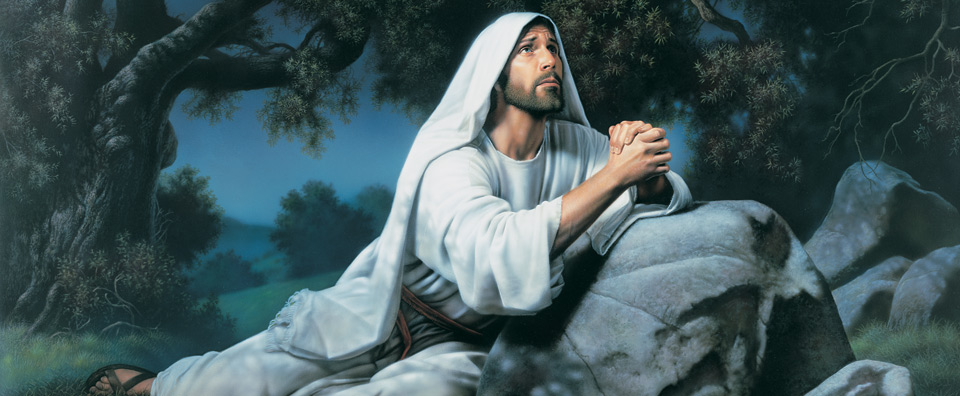
Our gratitude to God must find specific expression in appreciation for the atonement.
Marion G Romney wrote:
[quote_box_center]
“To the Lord Jesus we owe an undying debt of gratitude, for He bought us with a great price. It is impossible for us, weak mortals as we are, to fully comprehend and appreciate the sufferings He endured on the cross that He might gain for us the victory over death. Much less can we understand the suffering He endured in Gethsemane that we might obtain forgiveness of our sins . . . Much less, I say, can we understand this suffering that He endured to satisfy the demands of justice and bring about the means by which we, through faith in him, and repentance, can receive forgiveness of our sins.
“None of us could have endured that suffering. No mortal man, nor any number of mortal men together, could have endured it. ‘There was no other good enough/To pay the price of sin./ He only could unlock the gate/Of heaven and let us in.’
“Surely every soul who understands what the Savior did for us loves Him and desires to demonstrate, in a realistic manner, thanks and gratitude.”
[/quote_box_center]
Gratitude, when applied to the atonement, gives our life meaning, purpose and direction. But do we know how to show gratitude for the atonement?
Christ answers simply: “If ye love me keep my commandments.”
With this in mind, we can understand why President Monson endorsed the words of Cicero, “gratitude is not only the greatest of virtues but the parent of all others.”
The commandments are the ways to show gratitude to the Savior.
6. Being Grateful for the Small Things

The Atonement, however, is not the only thing for which we should be grateful to God. The Doctrine and Covenants instructs, “Thou shalt thank the Lord thy God in all things.” This commandment proposes a “stop and smell the roses” gratitude.
Steven Snow, a member of the Seventy, shared this story, “One summer day, a car with New York license plates pulled in the station where my brother Paul worked and asked for a fill-up.
‘I’ve waited all my life to see the Grand Canyon,’ the man exclaimed. ‘What’s it like out there?’
‘I’ve never been,’ Paul answered.
‘You live two and a half hours from one of the Seven Wonders of the World and you’ve never been!’ After a moment, the man replied, ‘Well, I guess I can understand that. My wife and I have lived in Manhattan for over 20 years, and we’ve never visited the Statue of Liberty.’
‘Oh, I’ve been there.’ Paul said.”
Elder Snow concluded, “It is human nature . . . to seek elsewhere for our happiness.”
To reap all the blessings gratitude offers we must see the joy around us. Gratitude is not wistful for a past that was or a future that may never be, it sees the joy in the “is” and the “now.”[pull_quote_right]After three months I couldn’t get a box of children’s crayons right, and yet snow was perfect.[/pull_quote_right]
I grew up in Southern California and was only ever out of the state for summer vacations. When I arrived in upstate New York to serve a mission in the fall, I bought a box of 96 crayons to help decorate letters to my family. The box was completely disorganized when I bought it, and so I decided to organize it according to the colors of the rainbow.
But, over the next three months, every time I opened the box this orange was a little too yellowy, or this purple was too red, which of course meant it had to go to the whole other side of the box.
Then one morning I walked out of my door, and there was snow. It lay soft, flat, and whiter than anything I had ever seen. After three months, I couldn’t get a box of children’s crayons right, and yet snow was perfect.
Just a few years later, I was attending BYU-Idaho for Thanksgiving and it snowed. All I could do was complain about having to shovel.
Within a few short years, I was able to complain about something that I had just recognized as truly stunning and miraculous. Surely Christ’s instruction to be like little children includes their curiosity, wonder, and gratitude for the many small things all around us.
7. Blessings of Gratitude

This “stop and smell the roses” gratitude has recently been the subject of scientific research.
In one study, participants were randomly assigned to write a list each day of things they were grateful for, burdens they had, or a neutral list. At the end of ten weeks, those who had been writing the gratitude journal were twenty-five percent happier than those in the neutral group.
In follow up studies, that happiness difference lasted five months after the participants stopped keeping the lists. Until this study, scientists believed nothing could affect our long term happiness. Even quadriplegics are as happy three weeks after their accident as the general population.
Losing control of all four of our limbs can’t change our long term happiness, but keeping a gratitude journal can.
A young mother tried this approach of listing everything she was grateful for, and shared her stories of gratitude. “Our nine-year-old son,” she said, “responded gladly to my appreciation for him. Twelve-year-old Linda called me ‘kooky,’ yet she melted into happy smiles whenever approached by the new me.
“It was our 14-year-old son [Jeff] who really convinced me that I had a magic formula. Communication with Jeff had been most aggravating; the wall between us was thick and hard and had caused me great concern. Yet during the following week, in a brief note, Jeff wrote, ‘Mom, it has been nice to be able to talk to you lately.’ The fruits of gratitude were in our home.”
Vaughn E. Worthen, the associate director at the counseling center at BYU-Utah, explains these blessings further, “As a licensed psychologist, I have extensively researched the use of gratitude [journals] in promoting well-being. I find [they are] helpful in treating depression, reducing anxiety, and introducing a more positive focus to troubled relationships.”
During the first three months of our marriage, Susan and I found that listing our blessings to each other before bed increased our friendship and cheered up our days.
“Count your many blessings name them one by one” because you’ll be happier.
8. Develop an Attitude of Gratitude

The real question, though isn’t why we should be grateful, it’s why is it hard? Gratitude gives us and others more pleasure, with no cost.
One possible reason was mentioned by Peter Gomes, a Harvard chaplain who said, “When I [see] Christmas lights being strung . . . and Santa Clauses in the store windows, I [know] Thanksgiving [is] not far away.”
Not only does our society graze over Thanksgiving, we don’t really ever talk about gratitude. As members of the church, we are insulated from this a little bit. In the last ten years, President Monson has given no less than four talks on gratitude at General Conference, but it is impossible for us to not be swept up, at least to some degree, with our general cultural apathy to gratitude.
We can counteract this effect by praying in and for gratitude, and by making a conscious effort to think of our blessings. In one of those conference talks, President Monson instructed, “Think to Thank.”
9. Being Grateful During Trials

Bonnie Parkin, former Relief Society General President, said, being grateful for all things “means just that: good things, difficult things—not just some things.”
But in a world filled with evil, how can we be grateful for all things? The answer brings us back to what made Bart Simpson’s prayer so mistaken. Faith.
When the leper gave thanks to Christ, Christ immediately recognized the gratitude as faith, when he said, “thy faith hath made thee whole.”
When we see suffering in the world, for us to be grateful for all things, we must trust God. This can become especially challenging when things are not going well for us.
Robert Emmons, the researcher who conducted the gratitude study, has also examined the effect of gratitude after traumatic events. He asked, “Could gratitude be part of a person’s ‘psychological immune system’ that operates to convert adversity into prosperity?… An attitude of gratefulness,” he concludes, “permits a person to transform a tragedy into an opportunity for growth.”[pull_quote_left]For us to be grateful for all things, we must trust God.[/pull_quote_left]
Elder Robert D. Hales suggested that “in some quiet way, the expression and feelings of gratitude have a wonderful . . . healing nature. . . . Gratitude brings a peace that helps us overcome the pain of adversity and failure.”
It accomplishes this by helping us focus on those things for which we can be grateful. My electric bill may be outrageously high, but it’s because I have a warm home.
One example of finding gratitude in tragedy by changing our focus is Corrie ten Boom, a young woman whose family hid Jews in their home during the Holocaust. When she was discovered, her family was taken to a concentration camp.
In her book The Hiding Place, she explains how gratitude was the force that allowed her to survive. She recalls being grateful for the fleas that infested their barracks because the fleas kept the guards from interrupting them during their religious devotionals.
This and other stories of gratitude during hardship can help us have perspective and gratitude in the midst of our struggles.
Yet sometimes there is no ignoring the grief, we must look at it straight on and have gratitude anyway. A heartbreakingly extreme example of this principle came in the Pulitzer-Prize-winning play, Rabbit Hole.
Married couple, Becca and Howie, are coming to terms with the loss of their four-year-old son in a traffic accident. Becca, who is having a particularly difficult time processing the grief, asks her mother how long it will last.
Her mother tries to explain that it will never fully go away, but that at some point you can become grateful for the grief that remains, “It’s not that you like it,” she says, “but it’s what you’ve got instead of your son.” As Becca’s mother teaches us, at some point we can be grateful even for grief itself.
10. Use Trials to Become Grateful
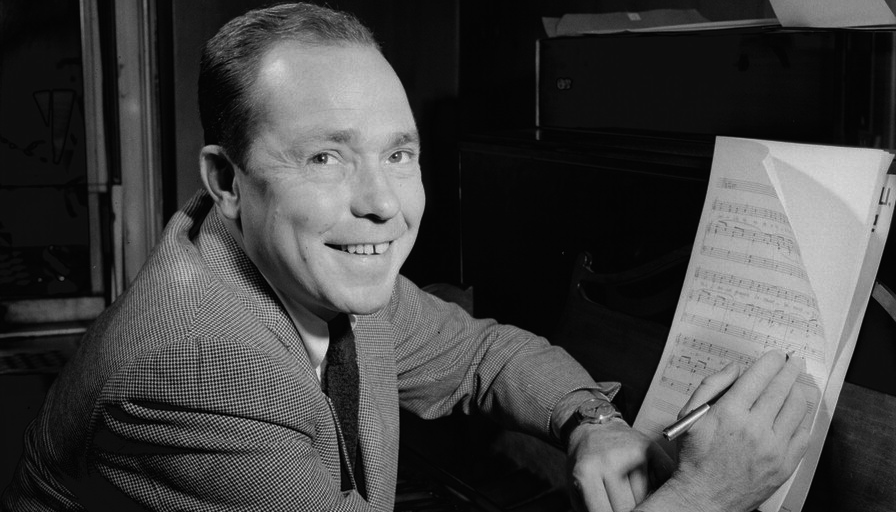
Gratitude can help us during hard times, but hard times can help us see gratitude other times. Elie Wiesel, another Holocaust survivor, noted during his Nobel Prize lecture, “No one is as capable of gratitude as one who has emerged from the kingdom of night.”
Lehi explained to his ungrateful sons, “it must needs be, that there is an opposition in all things. If not so…neither good nor bad [could be brought to pass.]” Lehi understood this idea intimately for after he, “suffered many afflictions and much difficulty” in the wilderness. He “exceedingly rejoiced” when he finally arrived in Bountiful.
Paul is an excellent example of someone whose prior experience made him more grateful. After his miraculous and tumultuous conversion, Paul mentions gratitude more in his writing per word than anyone else in scripture or anyone else in the Mediterranean for a thousand plus years before or after him. Paul’s trials made him more grateful.
[pull_quote_right]A spirit of gratitude places all our experiences in their proper perspective.[/pull_quote_right]This does not mean that we need to learn to rejoice in genocide or natural disasters, but we should rejoice in the plan of salvation that makes sense of these tragedies.
President Monson has shared this lyric, “Accentuate the positive;/Eliminate the negative./Latch on to the affirmative;/Don’t mess with Mr. In-between.”
Perspective can be a powerful tool in helping us develop a grateful attitude. Brigham Young wrote:
[quote_box_center]“We talk about our trials and troubles here in this life; but suppose that you could see yourselves thousands and millions of years after the few short years in this time . . . Then look back upon your lives here, and see the losses, crosses, and disappointments . . . you would be constrained to exclaim, ‘but what of all that? . . . we are now here . . . enjoying the smiles . . . of our Father and God.’”[/quote_box_center]
From such a distant vantage point, it is possible to have gratitude for things we could not imagine from our limited perspectives.
A spirit of gratitude places all our experiences—negative and positive—in their proper perspective.
11. Gratitude and Complacency
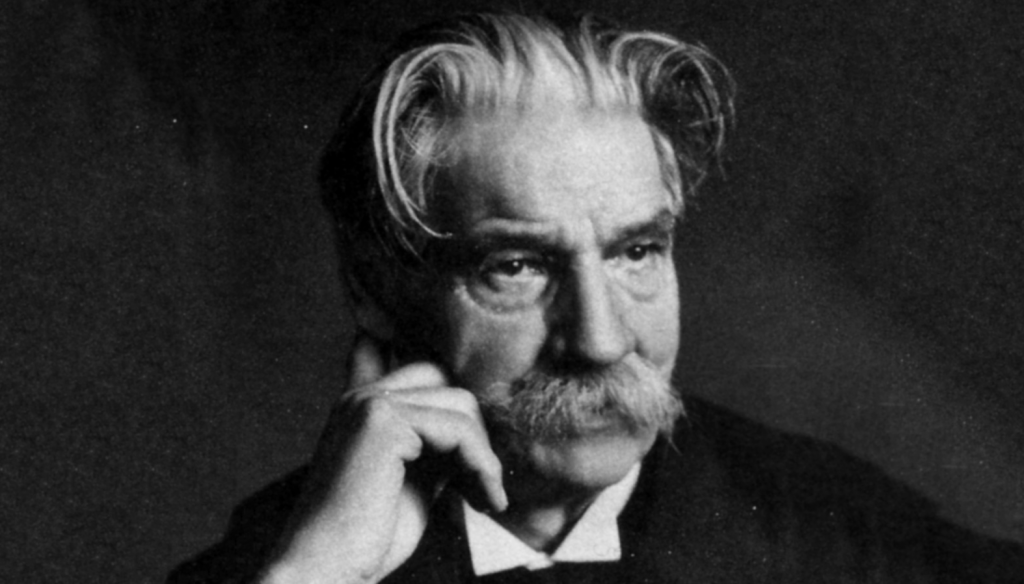
One danger with gratitude is we can let it decay into complacency. Remember Nephi said, “Wo! be unto him that is at ease in Zion.”
So far I’ve addressed gratitude as a feeling; it is interesting to note, though, that there is no word in either the Old or New Testaments which means the feeling of gratitude. The closest word may be thanksgiving, which is translated from a Hebrew word, תּוֹדָה (tō·dä’), which also meant singing praise. For the people of the Old Testament, gratitude was active, loud, and participatory.
One modern example of this is Albert Schweitzer. He was born to privilege and won world renown as a philosopher. Then he was discovered as an organ prodigy.
With so much to be grateful for, Albert could have lived a complacent life; however, his grateful attitude could not allow this. He explained, “The greatest thing is to give thanks for everything. It is a compulsion to help all life which [you are] able.”
He became a medical doctor, and built and ran a hospital in Africa for decades. For Albert, gratitude did not ignore the pain and suffering in the world but forced him to do something about it. “Gratitude,” he declared, “is the secret to life.”[pull_quote_left]None of my pent up pain caused me to help improve the situation, but my gratitude did.[/pull_quote_left]
I experienced a similar relationship with gratitude. For two years, I studied directing at The University of the Ozarks. The program had only two professors, who we took all our classes from. My faith became a sticking point for one of these professors. Our personal relationship crumbled. This man called me vicious names, lost papers I turned in for class, required I put up degrading letters on our theater bulletin board, and to see a therapist in order to keep my scholarship.
Though, I left, I wanted to help my friends still in this volatile situation. However, my resentment never got me to lift a finger for them.
The next Thanksgiving, as I was reflecting on my many blessings, I realized how grateful I had become that I had moved on. It was only then that I wrote a letter to the academic dean suggesting policies that could prevent my situation from reoccurring.
For several years at Thanksgiving, I wrote a letter urging action. Somehow none of my pent up pain caused me to help improve the situation, but my gratitude did.
Making the decision of when to be grateful for our power to help change the world, and when to be grateful for what we already have may come down to one of the original Mother Goose Nursery Rhymes, “For every ailment under the sun/ There is a remedy, or there is none;/ If there be one, try to find it;/ If there be none, never mind it.”
I hope we all have the wisdom to know whether “there be one” or “if there be none.”
Even when mastered, gratitude does not solve all our problems. It will not make us saints, though it will put us on the path. It is not a miraculous cure-all for our relationships, though it will help us see them in a sunnier light. It is not a phony attitude of ignoring the blemishes and pain of life. It does not erase grief but can make those times easier to bear. It can nourish us spiritually and smooth the jagged edges of our lives.
May we all have gratitude. May it line our lives in happiness, and adorn our lives with purpose. Happy Thanksgiving!


